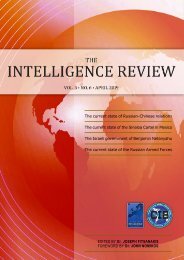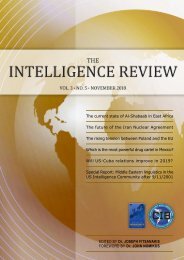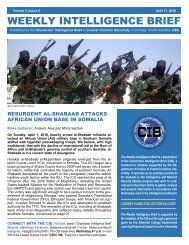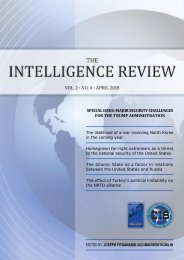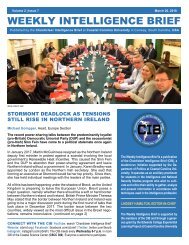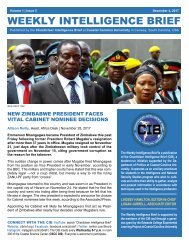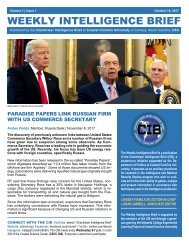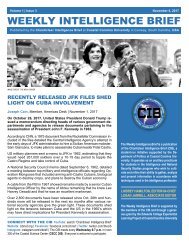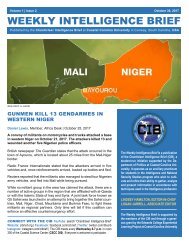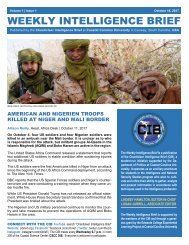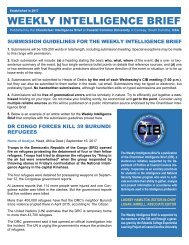The Intelligence Review | volume 5 | issue 9 |
This volume is the product of a transatlantic collaboration between the Chanticleer Intelligence Brief (CIB) and the European Intelligence Academy (EIA), a network of intelligence studies scholars, specialists and students, who are dedicated to promoting collaboration between Europe and the United States in intelligence scholarship and research. As always, the contents of this latest volume of The Intelligence Review are both timely and insightful. Joshua Altman focuses on the relationship between Scandinavia and the North Atlantic Treaty Organization alliance. Jacob Vaughan discusses the future of the presidency of Jair Bolsonaro in Brazil. Hannah Clegg examines the current state of relations between Israel and the Palestinians. Conrad Kodjanian analyzes the evolution and launch prospects of the Chinese digital Yuan. Jake Viator outlines the threats posed to regional stability by the Kata'ib Hezbollah militia in Iran. Ana Maria Lankford discusses the current state of relations between the White House and the United States Intelligence Community. And Jared Gott provides an update on French counter-terrorism efforts in Africa.
This volume is the product of a transatlantic collaboration between the Chanticleer Intelligence Brief (CIB) and the European Intelligence Academy (EIA), a network of intelligence studies scholars, specialists and students, who are dedicated to promoting collaboration between Europe and the United States in intelligence scholarship and research. As always, the contents of this latest volume of The Intelligence Review are both timely and insightful. Joshua Altman focuses on the relationship between Scandinavia and the North Atlantic Treaty Organization alliance. Jacob Vaughan discusses the future of the presidency of Jair Bolsonaro in Brazil. Hannah Clegg examines the current state of relations between Israel and the Palestinians. Conrad Kodjanian analyzes the evolution and launch prospects of the Chinese digital Yuan. Jake Viator outlines the threats posed to regional stability by the Kata'ib Hezbollah militia in Iran. Ana Maria Lankford discusses the current state of relations between the White House and the United States Intelligence Community. And Jared Gott provides an update on French counter-terrorism efforts in Africa.
- TAGS
- wwwcibrieforg
- intel
- yuan
- digital
You also want an ePaper? Increase the reach of your titles
YUMPU automatically turns print PDFs into web optimized ePapers that Google loves.
Introduction
Dr. Joseph Fitsanakis
Professor of Intelligence and Security Studies, Coastal Carolina University
Deputy Director, European Intelligence Academy
Until very recently, academic preoccupation with intelligence was
limited, and undertaken almost exclusively in the graduate domain.
A few dozen courses were offered by some undergraduate programs,
typically by liberal-arts institutions. These tended to be highly
interdisciplinary and led primarily by political scientists and
historians. Limited historical research into intelligence institutions,
or intelligence practitioners and their operations, was undertaken
by academics in Europe, the United States and elsewhere. Such
research focused largely on case studies from the periods of
World War II and the Cold War.
In the United States, the first calls to create a systematic intelligence
studies curriculum in the undergraduate domain were issued
by intelligence practitioners in the 1950s and 1960s (Coulthart
and Crosston 2015). By the 1990s, a few dozen undergraduate
courses in intelligence were being offered on a regular basis in
Western universities. The first concrete step toward establishing
11






